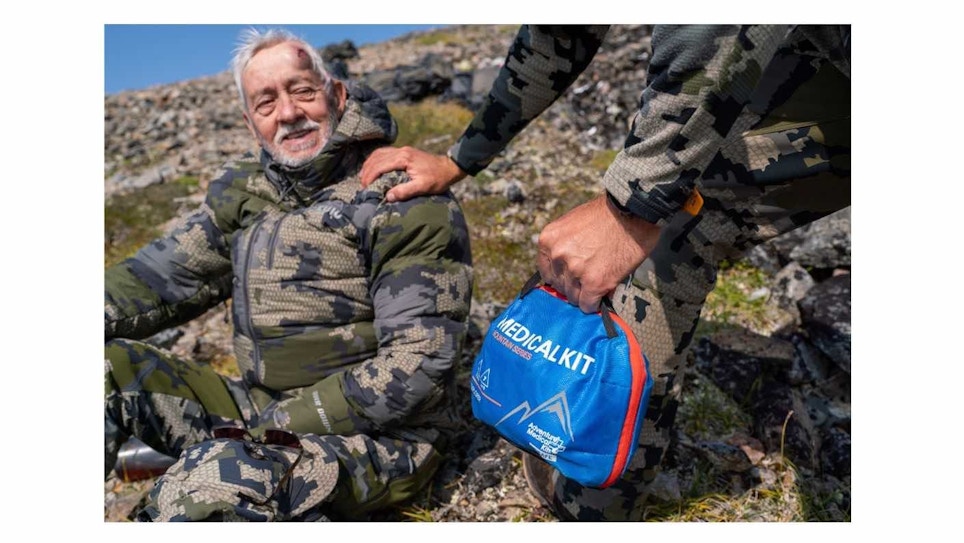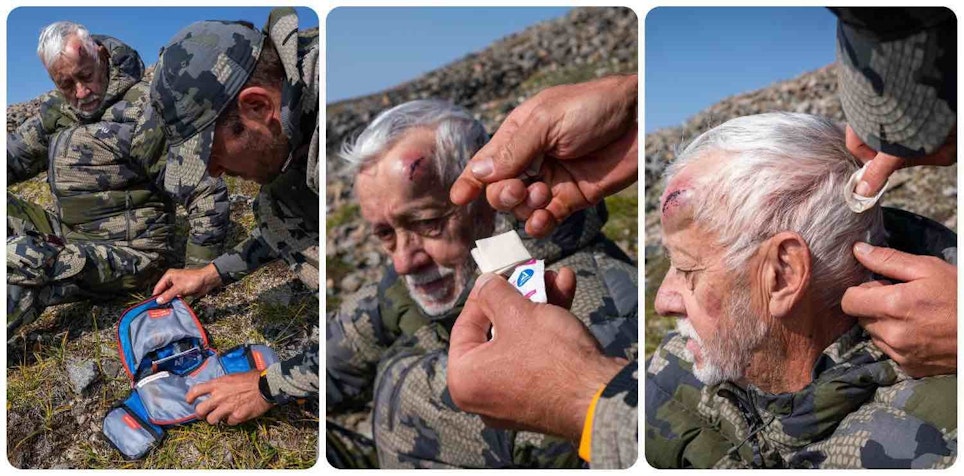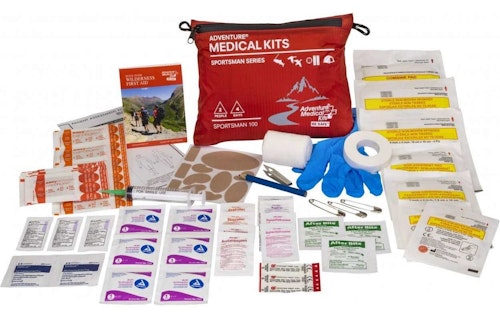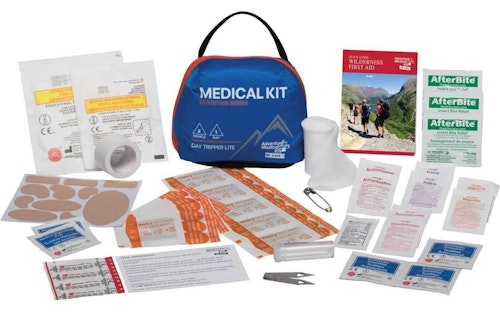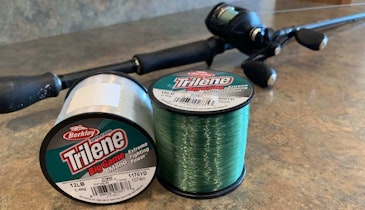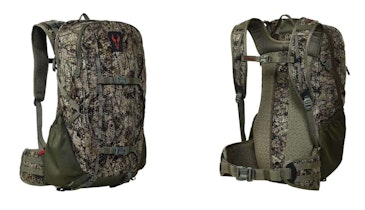One of my favorite hunters to follow on YouTube and social media is Greg McHale of Greg McHale’s Wild Yukon. McHale hunts the remote Yukon on foot in pursuit of big game. Quote from his YouTube page: “Pitting himself against the elements and the terrain, Greg pushes his limits to show you the rewards and dangers of facing one’s fears and the wilderness.”
It’s important to note that while McHale is an elite athlete, he often shares the wilderness with friends and family who aren’t in the same physical shape. Regardless of fitness level, however, McHale understands that an accident can happen to anyone, and he has to be prepared to deal with an injury in the field.
The text below (and pics above) appeared this winter on McHale’s Facebook page. It details a scary event from the 2021 hunting season while pursuing sheep with his dad.
When my father took a spill during a sheep stalk this year, we knew pretty quickly how lucky he had gotten off. You don't see it in these photos, but we were walking on a thick layer of melting snow, on top of slippery and moving rocks, when he took a fall. Because we were stalking his ram, he wasn't using trekking poles, which are normally a must-have for him and anyone who wants to stay with their right-side up.
Thankfully, he didn't suffer a concussion or a broken bone, but rather scrapes and this epic goose egg on his noggin. We were equipped with a first-aid kit and were able to clean up these head wounds and the laceration on his leg. If you've wondered if a first-aid kit should make it into your pack, I hope I've convinced you otherwise.
Choosing a Kit
Several companies offer effective first-aid kits; the brand you purchase isn’t as critical as the need for you to carry one while hunting, fishing or hiking — and knowing how to use it. I learned from McHale’s Facebook post images that we both depend on the same brand, Adventure Medical Kits.
I carry the company’s Sportsman Series. These kits are sold in four sizes, based on the number of people and the number of planned days in the field. For example, the smallest kit, the Sportsman 100 ($29.99), is for up to two people and four days; the largest, the Sportsman 400, is up to 10 people for 14 days. I store one Sportsman 100 in my boat and own a second for hunting trips.
The company’s Mountain Series, which is McHale’s choice, comes in six sizes, ranging from the Day Tripper Lite ($15.99; up to two people, one day) to the Mountain Mountaineer (up to 10 people, 28 days).
As you can see from the product photos above, Adventure Medical Kits come with a quick guide for wilderness first aid, in addition to many products for treating wounds, blisters and more.
If you already own — and carry! — a decent first-aid kit, then in my experience you’re in the minority. Sadly, many hunters, anglers and hikers seem to have an “it won’t happen to me” mindset. If you don’t own a first-aid kit, then make a change in 2022. And if you have a buddy or family member who needs one, it makes an affordable and important gift.
I’ll end this article with the same advice I say to my 18-year-old son every time he leaves to go duck hunting or fishing with buddies: “Be safe, buddy.”
Field photos from Greg McHale’s Wild Yukon Facebook
